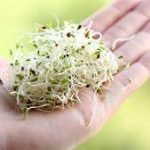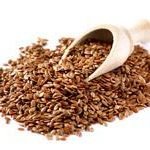Is a vegetarian diet automatically healthier? Not necessarily. Some people actually do better when they include small amounts of meat in their diet—although, to be sure, a balanced vegetarian diet appears to offer some protection against cancer and heart disease.
“Is a vegetarian diet automatically healthier? Not necessarily. Some people actually do better when they include small amounts of meat in their diet—although, to be sure, a balanced vegetarian diet appears to offer some protection against cancer and heart disease. Other factors in our diet, however, affect our health to a much greater degree than whether or not we eat meat. The bottom line is that, ethical questions aside, eating small amounts of meat, chicken, or fish probably comes down mostly to a personal choice. If you choose to, you can include meat in your diet without any significant health problems—with the following provisos:
- Keep the amount small—3 ounces of meat a day or less. Heavy consumption of meat significantly compromises beneficial bacteria in the colon, resulting in a 1,000 percent increase in the levels of harmful bacteria and a concomitant 90 percent drop in the levels of the beneficial bacteria.
High consumption of meat also tends to push the body’s pH levels into the acidic range, which presents major health risks, including cancer and osteoporosis. Epidemiological studies at Harvard Medical School showed that, “Men who eat red meat as a main dish five or more times a week have four times the risk of colon cancer than men who eat red meat less than once a month.” They are also more than twice as likely to get prostate cancer.
A recent study found that women who had more than one-and-a-half servings of red meat a day doubled their risk of hormone receptor–positive breast cancer.
- If you’re going to eat meat, buy only organic meat to avoid exposure to the whole range of chemicals, growth hormones, and parasites present in today’s mass produced beef and chicken, or the high levels of toxic metals present in most fish. Just as an example, over 90 percent of today’s chickens are fed arsenic compounds, which have been government-approved additives in poultry feed for decades and are used to kill parasites and to promote growth. And while we’re on the subject of chickens, according to a government study, over 90 percent of all chickens are infected with leukosis (chicken cancer). As for those chickens with too much cancerous tissue to be sold, well… they’re destroyed, ground up, and fed back to the chickens that we ultimately buy and eat! If organic isn’t available locally, pressure your supermarket to carry it as an option.”








